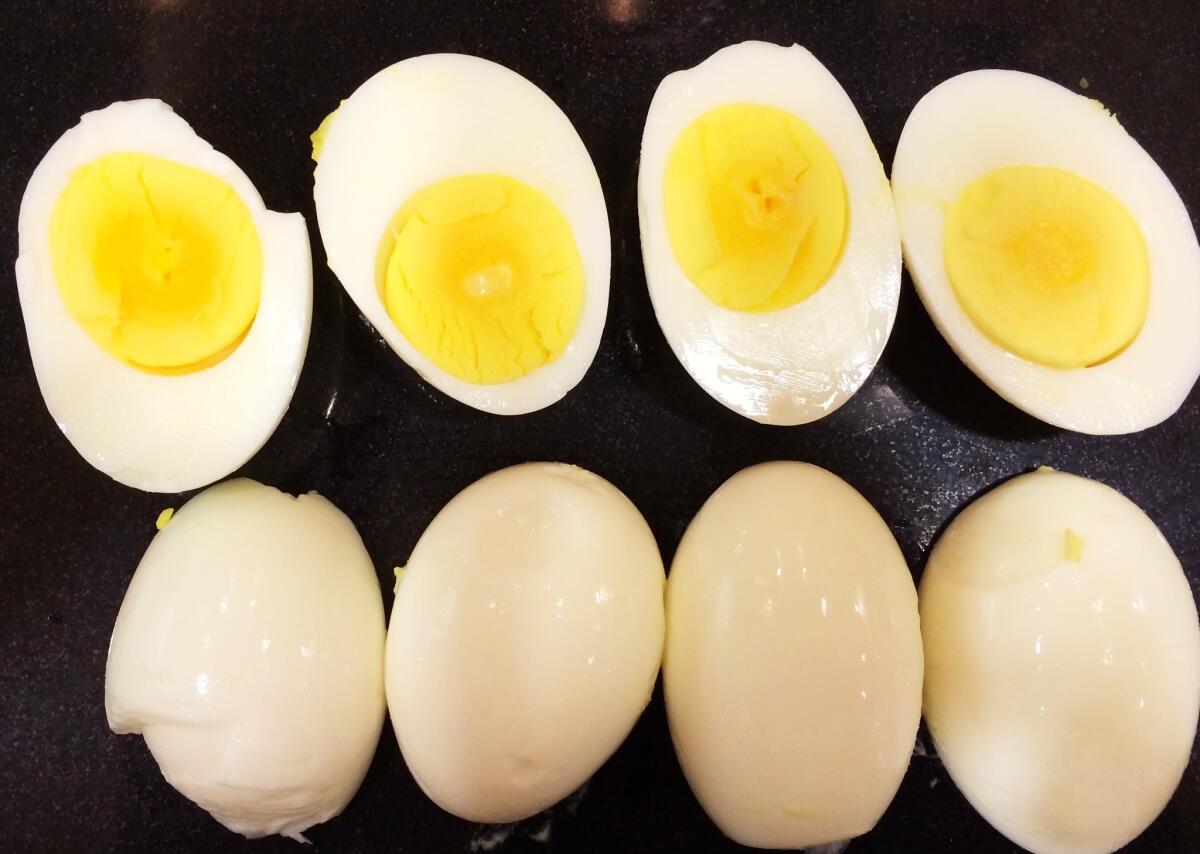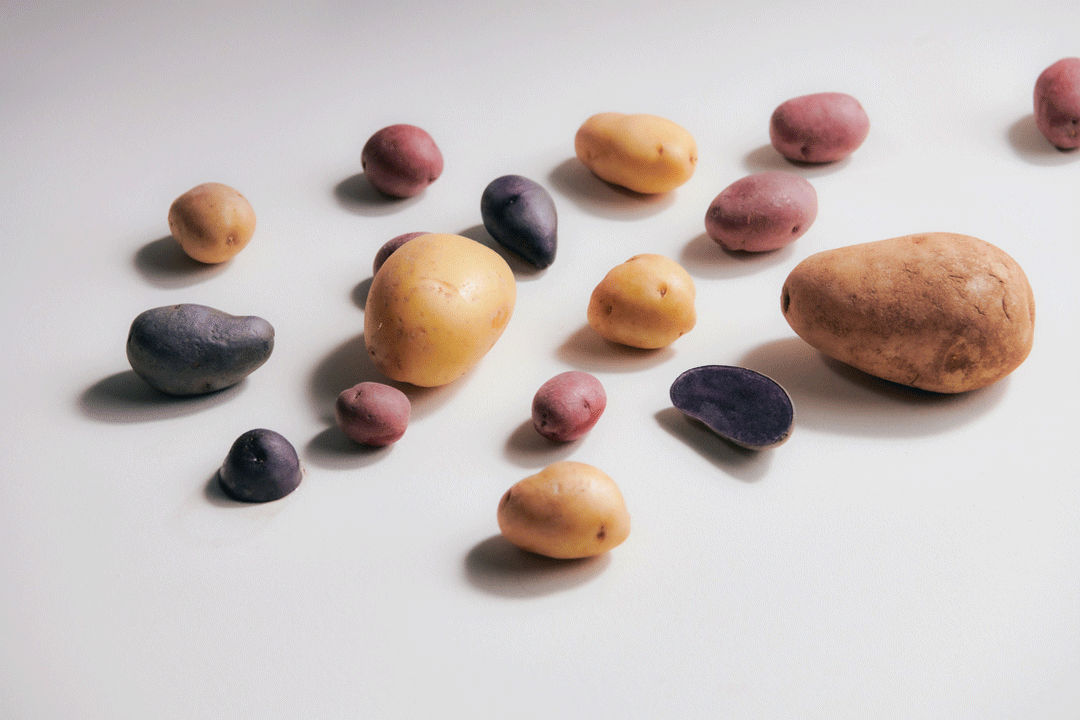Perfect hard-boiled eggs? We’re not done yet

And you thought you’d heard the last from me on hard-boiled eggs. Frankly, so did I. But my e-pal and partner in obsession J. Kenji Lopéz-Alt over on Serious Eats just wrote about his method, and it was so interesting I had to give it a try.
As you might recall, I’ve been angsting for the last several years over how to make great hard-boiled eggs. I know, right? But I think precisely the fact that it seems so simple is what makes it so maddening. Perfection always seems to be just around the corner.
My latest technique is this: Arrange the eggs in a single layer in a pot just big enough to hold them; cover them generously with cold water; bring to a boil over high heat; cook for 1 minute; remove the pan from the heat and let stand for 12 minutes.
That’ll give you what I think are perfectly cooked eggs. Making them easy to peel is a second challenge. The method I came up with is draining the cooked eggs, rattling them around in the saucepan to crack them slightly, then covering them with ice water for at least 15 minutes.
It’s not perfect – sometimes you just come across an egg that refuses to peel – but I had a high enough percentage of success to think I’d solved the problem.
And then Kenji came along. He’s a really smart guy and I love his geeky approach to how cooking works. Of course I would.
His technique, based on extensive research and testing – most of which is recorded on the website – is: drop the eggs into water that is already rapidly boiling; reduce the heat to a simmer; cook for 11 minutes; transfer to an ice water bath and chill for 15 minutes.
His reasoning is interesting – briefly, he says that starting the eggs in boiling water sets the outside of the white so quickly that it won’t stick to the shell (I’m paraphrasing, you should read it yourself). That sounds sensible.
The basic question, how to hard-boil an egg, sounds so simple it’s hard to believe there could be disagreement. But the reality is, Kenji and I are trying to answer two slightly different questions. He’s looking for a good egg that peels easily; I’m looking for a great egg that can be peeled.
He acknowledges that the risk he runs with his technique is that the high heat could also make the whites slightly rubbery and tough. It also relies on accurate timing – go much over his 11 minutes cooking (or if your idea of a slow simmer is a little different than his), and you’ve got more problems than slightly tough whites.
And when I tried it just now in the Test Kitchen, my results were mixed. On the plus side, I didn’t find the whites were objectionably tough at all. On the downside, I didn’t find that the eggs were any easier to peel.
As it happens, I just fixed hard-boiled eggs again last weekend (as part of a backyard grand aioli). Of the half-dozen I cooked, one was very hard to peel, one was kind of hard to peel and the others peeled fairly easily.
Obviously, more work is required. Do you think we could get a grant for this?
More to Read
Eat your way across L.A.
Get our weekly Tasting Notes newsletter for reviews, news and more.
You may occasionally receive promotional content from the Los Angeles Times.











